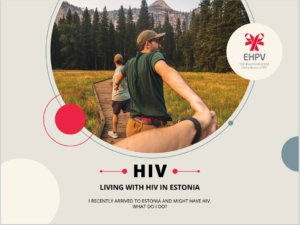A study on the implementation of humanitarian visa systems in the Member States of the European Union and the Schengen area was carried out as part of the project “Protection through Mobility: An Emergency Response to Hostility”.
 A study on the implementation of humanitarian visa systems in the Member States of the European Union and the Schengen area has been carried out within the framework of the project “Protection through Mobility: An Emergency Response to Hostility” commissioned by the Estonian Network of HIV-positive People. The results of the survey were presented on October 20, 2021 and the survey was conducted by Liina Laanpere and Lehte Roots. ”
A study on the implementation of humanitarian visa systems in the Member States of the European Union and the Schengen area has been carried out within the framework of the project “Protection through Mobility: An Emergency Response to Hostility” commissioned by the Estonian Network of HIV-positive People. The results of the survey were presented on October 20, 2021 and the survey was conducted by Liina Laanpere and Lehte Roots. ”
After evaluating humanitarian visa schemes of different EU/Schengen states, Switzerland was identified as the best practice to follow. The Swiss system has most of the features recommended by the European Parliament in the 2018 Report with recommendations to the Commission on Humanitarian Visas147, and it is accessible for all asylum-seekers, including LGBTI+ asylum-seekers or HIV-positive asylum-seekers.
Aliens. The provision could also include a possibility to make exceptions from the general visa requirements listed in the Aliens Act § 62, such as the requirement to have a health insurance policy and sufficient financial resources to return to the country of origin.
